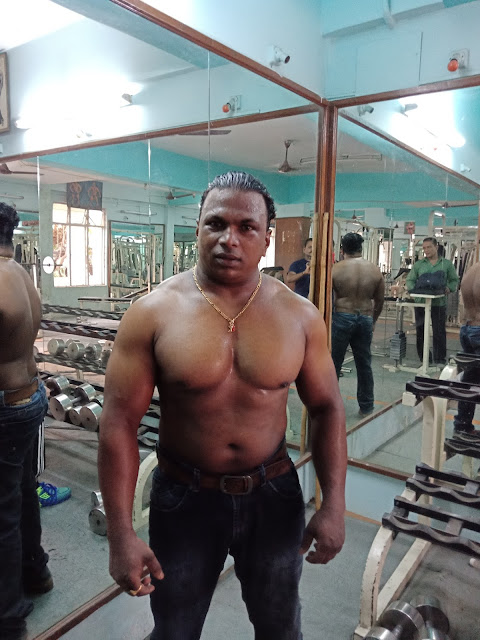THE BEST FULL-GYM CHEST WORKOUT ROUTINE
THE BEST FULL-GYM CHEST WORKOUT ROUTINE:
chest fast with this high-volume, muscle-building workout.
Bodybuilders of the ’70s liked to stretch and flex the muscles they were training between sets, believing it enhanced growth. What they stumbled upon has been refined into a formal muscle-building
It's the easiest way to build a more imposing upper body and transform the way you look in everything from t-shirts to sweatshirts. Plus, if it works for guys like Magic .
WORKOUT A
HOW IT WORKS
After pounding the pectorals with some conventional chest exercises, we finish them off with seven sets of FST-7, which stands for “Fascial Stretch Training.” Fascial refers to the fascia, the web-like connective tissue that envelopes each muscle. Picture that thin layer of tissue that covers a skinless chicken breast—that’s the same stuff. In theory, by stretching the fascia, you create more room for the muscles to grow. By flexing, you’ll drive more nutrient-filled blood into the muscles to enhance gains.
After pounding the pectorals with some conventional chest exercises, we finish them off with seven sets of FST-7, which stands for “Fascial Stretch Training.” Fascial refers to the fascia, the web-like connective tissue that envelopes each muscle. Picture that thin layer of tissue that covers a skinless chicken breast—that’s the same stuff. In theory, by stretching the fascia, you create more room for the muscles to grow. By flexing, you’ll drive more nutrient-filled blood into the muscles to enhance gains.
Every set should be taken to near failure. For the cable crossover, alternate stretching and then flexing your pecs between sets. So you’ll complete a set and then stretch for 30 seconds, then do another set and flex for 30 seconds. After the stretch/flex, you can rest up to 45 seconds. For the stretch, rest your forearms against a door frame, or use the beams of a power rack, and lean forward. To flex, tense your pecs isometrically.
WORKOUT B
If you’ve been working out for a while, this routine will probably remind you of some of the chest sessions you did in the early days. It’s good, old-fashioned hard work and provides a lot of pec isolation. If you’ve gotten more scientific with your training since and noticed fewer gains, this simple and direct approach may be what you need to get growing again.
When a muscle contracts, the whole thing contracts. So when you hear trainers talking about exercises for the “upper” pecs and “inner” pecs, this isn’t entirely accurate. However, while the whole pectoralis major muscle is involved in any kind of press, dip, or flye motion, different parts of it are indeed emphasized depending on the angle of resistance. So while an incline dumbbell press will work the whole chest, it’s making the fibers that attach to your clavicle work harder than the ones that attach to your ribs. We’ve given you exercises that work every part of the chest and with varying degrees of isolation. If you don’t normally feel your pecs working on barbell presses, you’ll love what dumbbell and machine work does for you.
Stop each set a rep or two short of failure. Feel free to combine the workout with Option A, shown previously. The two routines fit well together but should be spaced three days apart.













Comments
Post a Comment